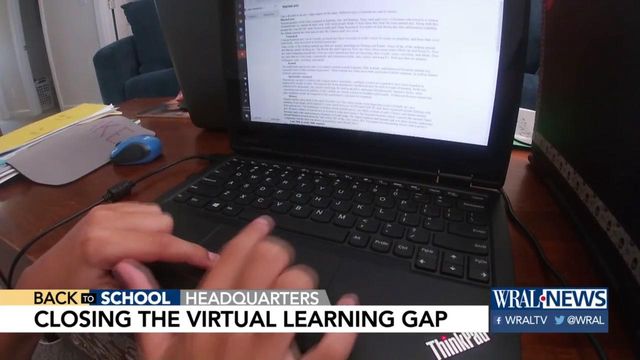70% of Northampton County students need computers, internet access for online learning
Seventy percent of students in Northampton County Schools don't have a computer, and 70% lack internet access.
Posted — UpdatedDespite these challenges, the school district has still decided to start the school year online for the first nine weeks.
The district has less than two weeks to make sure every student has the technology they need to connect with their teachers online, but Northampton County Schools Superintendent Pamela Chamblee said the district will be able to provide technology and hotspots to students who need it.
"We are so determined that our students will get what they need to be able to access the learning," Chamblee said.
The district is listed as the tenth poorest in the state. For comparison, Northampton’s student population is just one percent the size of Wake County’s -- the second-richest school district in North Carolina.
One of the biggest problems the district is facing is internet connectivity in the county.
"We realize that we do have some areas that are internet deserts," Chamblee said.
The county school system has purchased WiFi hotspots that students living in internet desert areas of the county can take home, Chamblee said. In addition, the N.C. State Highway Patrol donated 236 laptops for Northampton students.
"The donations really helped a lot, and we’re grateful for that," Chamblee said.
The school system also applied for a fund called the Elementary and Secondary School Emergency Relief fund. This support will provide more Internet devices for families.
As part of a strategy to connect students living in areas without access, the system has organized mobile "bus cradles." The district will put hotspots on buses and drive those buses to the areas that need internet service, Chamblee said.
"We feel like we can accommodate what our needs are in this area at this point," Chamblee said.
Giving students technology and access to internet is only the first step, Chamblee said. The next step will be training parents and students how to use their devices and adjust to online learning.
Related Topics
• Credits
Copyright 2024 by Capitol Broadcasting Company. All rights reserved. This material may not be published, broadcast, rewritten or redistributed.






